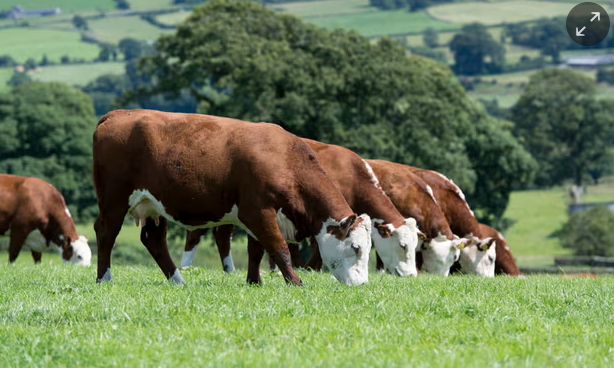December 5, 2025 | 16:51 GMT +7
December 5, 2025 | 16:51 GMT +7
Hotline: 0913.378.918
December 5, 2025 | 16:51 GMT +7
Hotline: 0913.378.918

Agricultural greenhouse gases make up about a quarter of total anthropogenic emissions and mostly derive from livestock. Photograph: Farm Images.
More than 20 scientific experts have written to the UN’s food agency expressing shock at its failure to revise or withdraw a livestock emissions report that two of its cited academics have said contained “multiple and egregious errors”.
The alleged inaccuracies are understood to have downplayed the potential of dietary change to reduce agricultural greenhouse gases, which make up about a quarter of total anthropogenic emissions and mostly derive from livestock.
In the joint letter, which the Guardian has seen, the scientists say they are dismayed that the UN Food and Agriculture Organization (FAO) has failed to remedy “serious distortions” originally identified by the academics Paul Behrens and Matthew Hayek, which the Guardian reported on earlier this year.
Behrens and Hayek say a separate complaint has received short shrift. They say a “technical dialogue” promised by the FAO never materialised, beyond an invitation to a muted webinar where they could type questions into a Q&A box.
“There has been no serious response,” Behrens said. “They partially addressed one of the points in the webinar in an unscientific way. But they gave no response at all to the vast majority of our complaints. Our concerns have barely been acknowledged, let alone seriously engaged with. It’s been like hitting a brick wall. The FAO has made grievous errors that need urgent correction to maintain its scientific credibility.”
One of the signatories to the letter, Jennifer Jacquet, a professor of environmental science and policy at the University of Miami, compared the FAO’s complaints process unfavourably with those of a science journal, “where you could at least expect a correction to the article”.
The FAO’s “pathways toward lower emissions” study was originally billed as “an updated comprehensive overview” of global livestock emissions and was launched at last December’s Cop28 climate summit.
Behrens and Hayek said it inappropriately used their work on now outdated nationally recommended diets (NRDs), double-counted meat emissions, mixed different baseline years in analyses, and omitted the opportunity cost of carbon sequestration on non-farmed land.
Correspondingly, the emissions savings from farming less livestock were underestimated by a factor of between six and 40, Hayek estimated.
In an initial response to complaints, seen by the Guardian, the FAO’s chief scientist, Beth Crawford, described the report’s NRD-based emissions forecast for 2050 as “a rough estimate”. She said: “This methodological choice was made because there is no global database on dietary preferences and no policy instrument that supports the adoption of alternative diets based on balanced environmental, economic and social criteria.”
She did not touch on other points raised by the pair, such as alleged double counting and mixed baseline years, which Hayek said “are related to their misuse of our scientific data”.
Crawford’s response said the FAO had received a “rigorous and thorough review” supporting its conclusions from a group of scientists led by three named academics.
The joint letter, which was also signed by 78 environmental groups, said: “It is not acceptable for the FAO, a respected UN institution, to gloss over these serious errors as a ‘rough estimate’ when the data and policy recommendations it provides are so internationally influential. A higher standard of scientific rigour is required.”
Jacquet said: “It seems clear to me that some of the choices made by the FAO in their methodology were just there to uphold the status quo of increasing meat production and consumption.”
The FAO was contacted for a response.
(The Guardian)

(VAN) Landmark SOLAW 2025 report reminds us that resources for food are not infinite.

(VAN) Climate change is a growing concern for agricultural productivity and several studies have focused on how climate variations can impact crop yields.

(VAN) In today's fast-paced society, with people busy with their work and social lives, many dream about quitting the rat race to experience a slower pace of life, which they imagine as being more poetic.

(VAN) Mindanao’s durian industry is reaping the benefits of rising global demand, with farmers now enjoying improved market access, better farmgate prices, and stronger profitability, the Department of Agriculture in Davao Region (DA-11) reported.

(VAN) Iraq is currently grappling with one of the most severe agricultural and livestock crises in its modern history.

(VAN) The Mediterranean and the Black Sea: Fisheries sustainability concerns remain, but overfishing drops to its lowest level in a decade, while aquaculture feeds more people.

(VAN) Cargill Inc has no plans to close its U.S. beef processing plants, days after meatpacker Tyson Foods l opens new tab announced it would shutter a Nebraska facility as industry grapples with cattle supplies.